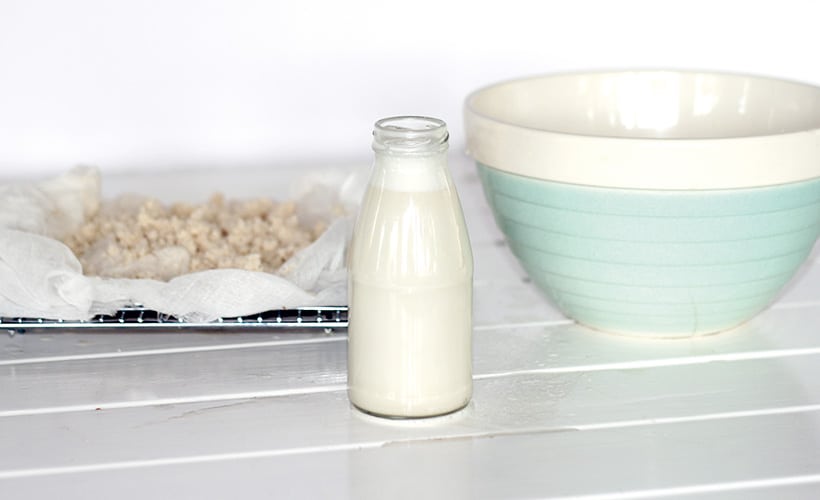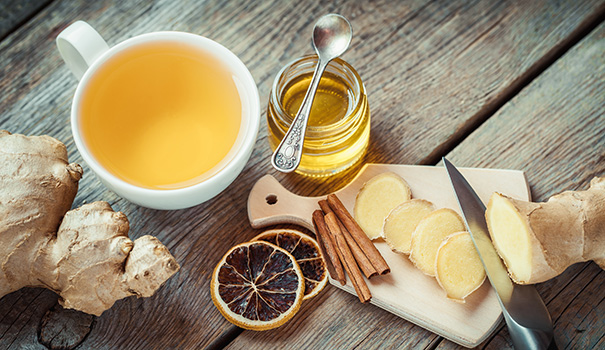The dreaded winter cough. It’s a pain in the, ahem, chest. Count yourselves lucky if you and your family have escaped one of the many viruses doing the rounds that produces an irritating and often lingering cough. While annoying, coughs do play a role in clearing irritants and infections from the body but once the acute stage of a virus is over, we want to be able to prevent persistent and chronic coughing. Below are some nutritional “hacks” to help prevent and manage the winter cough…
Eating a healthy diet is an extremely important foundation to ensure that your immune system is geared up to have the best fighting chance of getting rid of colds and coughs. Eating a diet that supports a strong immune system is vital. Be sure to include foods rich in vitamins and minerals. To achieve this, focus on eating a variety of fruits and vegetables, whole grains, herbs, spices, nuts, seeds, free-range meat, and eggs. Try to reduce the consumption of processed foods, fried foods, sugar, artificial sweeteners, refined carbohydrates, alcohol, and caffeine. Some foods and drinks to reach for when trying to tame a cough include:
- Honey – Honey is a time-honored traditional remedy for treating symptoms of a cold, including a cough. Manuka honey is particularly beneficial as it has antibacterial and antiviral properties that set it apart from other honey. To use honey to treat a cough, mix 2 teaspoons of Manuka honey with warm water. Make this honey twice a day. (Please note, honey is unsafe to give to children under one year of age).
- Pineapple – Pineapple is a great source of vitamin C, which helps to boost the immune system. In addition, it contains bromelain, a powerful enzyme naturally found in pineapples that may help suppress coughs and loosen mucus.
- Chicken soup – some studies have suggested that this old-time remedy your wise Grandma may have recommended may actually be able to assist with treating colds and coughs after all. It is suggested that it may help relieve congestion in the respiratory system.
- Licorice root tea – Liquorice is a traditional herbal treatment for coughs and sore throats. It is thought to soothe airways and thin mucus. Licorice root tea is a gentle way to introduce this herb into your diet.
- Sweet potatoes – Sweet potatoes are a fantastic source of Vitamin A, a vitamin that plays a key role in maintaining the health of the mucosal surfaces of the body (ie. respiratory system!)
- Eat citrus fruits – Citrus fruits are plentiful in winter and Mother Nature seems to have made them so for good reason. They are a great source of Vitamin C. The white blood cells in the body (the “fighter” cells) use up a lot of Vitamin C when fighting viruses. It’s essential that we replenish the body’s supplies daily.
- Garlic and Onions – Include garlic and onions in your diet. These foods contain quercetin and mustard oils, which have been shown to inhibit an enzyme that aids in releasing an inflammatory chemical in the body that can contribute to coughing.
- Ginger – Ginger may ease a dry cough, as it has anti-inflammatory properties. The anti-inflammatory compounds in ginger can potentially help to relax membranes in the airways, which could reduce coughing. To brew up a soothing ginger tea, try adding 20 grams of freshly sliced ginger pieces to a cup of hot water. Allow to steep for a few minutes before drinking. Add honey or lemon juice to improve the taste and further soothe a cough.
- Stay hydrated – Staying hydrated is vital for those with a cough or cold. A dry throat contributes to the discomfort caused when you have a cold, such as a sore throat upon swallowing and a dry, raspy cough. Keep your body well-hydrated to help soothe a dry throat. Drink plenty of fluids but avoid drinks that contain caffeine (ie. coffee, tea, energy drinks, cola, hot chocolate) as caffeine is a mild diuretic that stimulates urination, causing your body to lose water. It is best to avoid drinking really chilled drinks, so aim for either room temperature or warm drinks. These can help to alleviate signs of a cold such as coughing. Hot drinks that may bring comfort and relief include: chicken broth, herbal teas, warm water with lemon and honey or you may like to try my Winter Remedy here.
Being aware of and avoiding possible foods that are likely to exacerbate your cough symptoms is also a key consideration. Foods to consider avoiding while you have a cough include:
- Dairy products – Dairy is believed to increase mucus production in the respirative tract, including the lungs and throat. When we have a cold or flu, our body is already usually producing excess mucus. A cough is often the body’s way of trying to expel excess mucus in the body, therefore reducing dairy consumption while you have a cough is an important consideration. Try to avoid milk, yogurt, cheese, ice cream, butter, whey protein powders etc.
- Food allergies and intolerances – Along with other symptoms, food allergies can cause coughs. If you have a chronic cough that just won’t go away, it may be worthwhile speaking to a healthcare professional to see if an allergy or intolerance may be a contributing cause. This is especially the case if you find that after eating a certain food group, your cough is exacerbated. Common food allergen culprits include (but are not limited to) cow’s milk, fish, shellfish, eggs, yeast, gluten, and nuts
Coughs are often caused by viruses or respiratory tract infections, but they can also be brought about by diseases and illnesses such as gastroesophageal reflux disease (GERD), chronic bronchitis, certain medications, and other chronic diseases. Please speak to a health professional with any concerns you may have about your cough and before introducing herbs into your health regime or making significant dietary changes. Hopefully, some of these dietary tips and natural remedies will help keep the hacking at bay this winter!

















Community